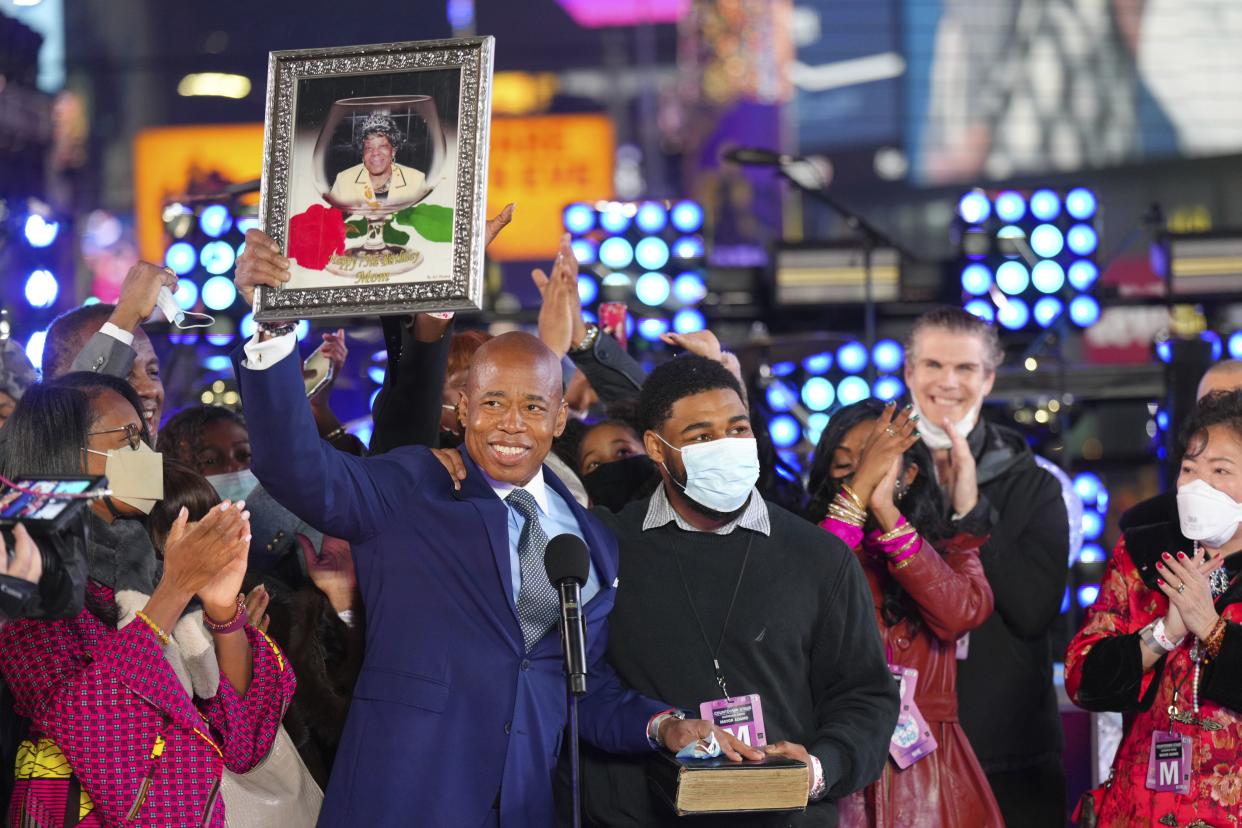NYC to launch citywide doula program for moms: Mayor Adams
New York will launch a citywide program to provide mothers with free access to doulas, Mayor Adams said Wednesday, deploying a relatively small infantry of childbirth experts in high-need areas before expanding across the five boroughs.
Adams, who hopes to significantly reduce the huge racial gaps in fatal pregnancy-related complications, moved to fulfill a campaign promise with the announcement, and said the city will start by offering free doula access in 33 neighborhoods.
“The reality is: Black women are treated differently when they go for health care,” the mayor said in a news conference at the city-run Brownsville Neighborhood Health Action Center in Brooklyn. “We have to be honest about it if we want to fix it.”

Doulas are trained to provide crucial counsel during the process of childbirth, but do not deliver babies. Mothers who have the support of doulas are less likely to experience complications or to require Caesarean sections.
The city’s multimillion-dollar initiative aims to offer doulas to 500 moms in the next three months, the mayor said. The city is working to train 50 doulas this spring, Adams noted.
First-time mothers who are eligible for Medicaid will be given priority initially, according to the city.
The City Hall blueprint will also include a so-called Midwifery Initiative that will work to better integrate midwives — who help women during and after delivery — in New York’s public and private health care infrastructure, the mayor said.
“We’re going to connect the dots,” Adams said. “It’s so important that we connect expectant moms and their families to vital resources such as healthy foods, prenatal classes and doulas.”

The program will begin in the 33 high-vulnerability neighborhoods identified by the city’s Taskforce on Racial Inclusion and Equity, said Dr. Michelle Morse, chief medical officer for the city’s Health Department.
“The time for birth equity is now,” Morse said. “Mortality rates of birthing people are too high.”
Some details of the program remained opaque, and the city did not immediately provide the specific cost of the program. But Adams, the city’s second Black mayor, repeatedly described the topic as a “real issue” and said he is committed to dismantling racial barriers in childbearing.
He said the city will also offer training for hospital staff on implicit bias. “We’re going to focus on the root causes of racial disparities in maternal health,” Adams said.

Doula access was an early focus of his crime-centered campaign for mayor last year.
A 2019 report from the city’s Health Department said that doula support can shrink inequities in maternal and infant health. Black women are three times as likely as white women to die of a pregnancy-related cause, according to the federal Centers for Disease Control and Prevention.
Adams suggested improved care and support would have significant implications for tots, too. He said stress on a mother can pass onto their child, and that the path to success starts long before kids head into classrooms for the first time.
“Everyone talks about K-through-12,” Adams said. “No! It starts in the mother’s womb. The first classroom is in a mother’s womb: the first nurturing, the first care.”
